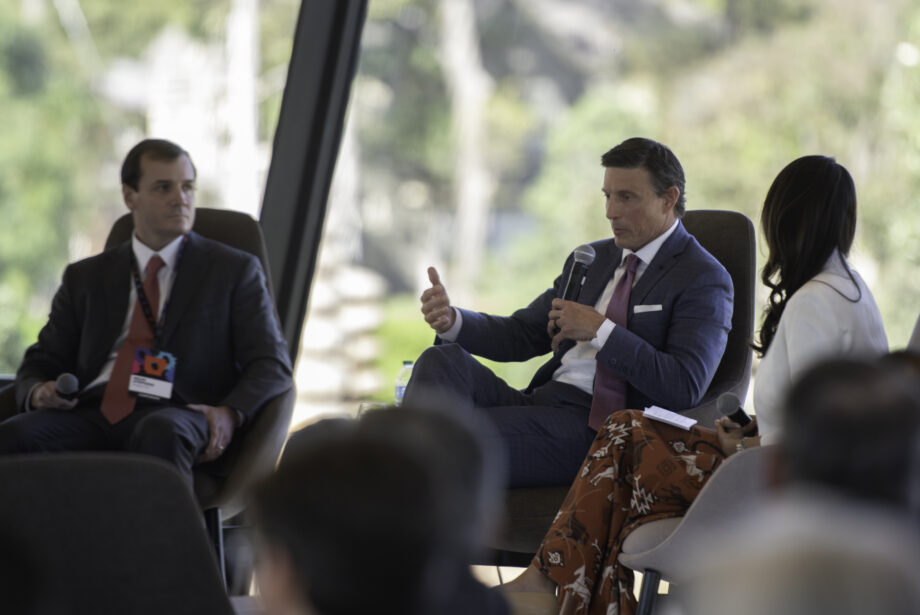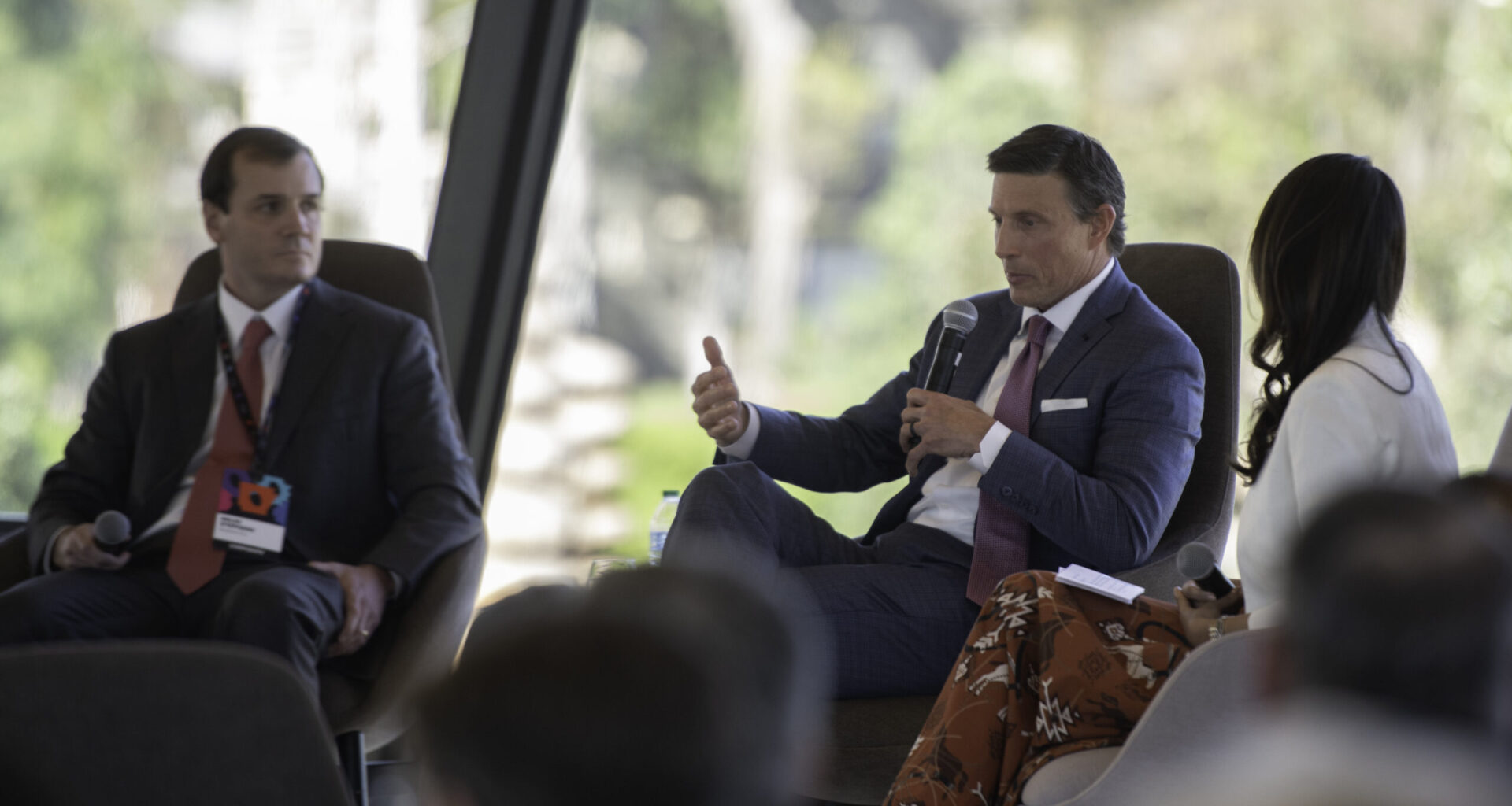
Miles Stephens and Bill Dillard III participated in a panel, moderated by Serafina Lalany, at a recent Onward FX event in Little Rock. (Provided)
Leaders from two of Arkansas’ largest companies discussed how they are balancing tradition and innovation during a panel discussion at a recent Onward FX event at the Arkansas Museum of Fine Arts in Little Rock. FX stands for Founder/Funder Exchange.
Both Bill Dillard III, senior vice president of Dillard’s Inc., and Miles Stephens, co-CEO of Stephens Inc., made an appearance at the venture capital event to share their thoughts on entrepreneurship and investment across the state.
“I am bullish on the state,” Stephens said during the panel, which was moderated by Serafina Lalany, executive director of StartupNWA, the Northwest Arkansas Council’s entrepreneurial network.
“I think the policy apparatus that we have in the state is business friendly, and I just think that we’re going to continue to see good growth and hopefully attract good businesses,” Stephens said.
Some pros the panelists discussed for the state were a low cost of living, high quality of life and small degrees of separation.
“You heard everybody use the term six degrees of separation. This is a one degree of separation,” Dillard said of Arkansas. “There’s a willingness to help and relational equity and just a general friendliness that I think is pretty unique.”
As far as investing in new businesses, Stephens said he always keeps in mind that someone has to be the first to believe in a company.
“There’s always that first big win that somebody needs to have the credibility,” he said. “They need that one person or group to believe in them. And we certainly want to see companies in Arkansas do well. With that mindset, I think we can be helpful in facilitating their growth, and then kind of having that startup mindset ourselves.”
Business Strategy
Dillard and Stephens both mentioned several business strategies their respective companies have taken to stay successful.
Dillard’s, which has been shattering stock records recently, still does most of its business in stores, Dillard said. Though the company does do a “nice percentage” of its sales online.
And the company is not trying to compete with low-price options, Dillard said.
 The panel was moderated by Serafina Lalany, executive director of StartupNWA, the Northwest Arkansas Council’s entrepreneurial network. (Provided)
The panel was moderated by Serafina Lalany, executive director of StartupNWA, the Northwest Arkansas Council’s entrepreneurial network. (Provided)
“We’re not selling on somebody who’s particularly price driven,” he said during the panel. “We tend to sell a level of product that helps people express themselves the way they want to express themselves, the way they want to present themselves in the world.”
He also said the company is in 17 of the 20 fastest-growing markets in the United States, and is “generally” a market leader in those areas.
“And we’re in a lot of secondary markets,” he added, mentioning Little Rock along with Knoxville, Tennessee, and Amarillo, Texas, specifically. “Places that are wonderful places, and there’s lots of disposable income, and there’s very little competition. I mean, there’s really nobody else.”
But Dillard said the pandemic was really a turning-point for the company. It didn’t offer work from home options, because it was an “all hands on deck” time period, he said.
“Up to that point, we were probably chasing market share for the sake of market share,” he said. So the company aimed to conserve cash, get inventory down, and improve regular selling by having fewer associates, “but the right associates.”
The company raised associate pay to more than $50,000 a year, plus commission.
“We had six individuals selling a million dollars a year before the pandemic, and now that’s over 100,” Dillard said. “We’ve gone to a relational model of selling rather than just parking or transacting.”
For growth at Stephens, one focus is finding the right people.
“That’s something that my brother and I have been focused on, and it’s really manifested itself just through simplifying and making clear our compensation structure and having clear incentives out there for everybody,” Stephens said. “If you’re productive, then you can make more money here than anywhere else. And that’s hard to argue with.”
He said Stephens is a “people business,” dependent on having employees that can sell the company and themselves to get hired by a corporation or a family. And he added that the company runs a “decentralized” model, giving people freedom to manage their own business lines rather than imposing top-down directives.
As far as innovation, Dillard said a lot of retailers have “shipwrecked themselves by chasing shiny objects.”
“That doesn’t mean that innovation and trying to do things isn’t important, but it means that it never will take the place of fundamentals,” he said. “When we’re deploying technology and trying to figure out where to go, it’s always in service of either improving our products, increasing customer service or improving the environment.”

